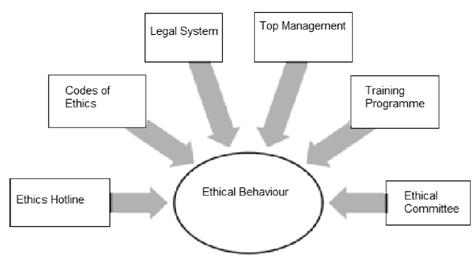Earlier, it’s believed that ethics is a prerogative of individuals, but now this perception has immensely changed. Many companies use management techniques to encourage ethical behavior at an organizational level.
Business ethics (also corporate ethics) is a form of applied ethics or professional ethics that examines ethical principles and moral or ethical problems that arise in a business environment. It applies to all aspects of business conduct and is relevant to the conduct of individuals and entire organizations. Business ethics can be thought of as written and unwritten codes of principles and values that govern decisions and actions within a company. In the business world, the organization’s culture sets standards for determining the difference between good and bad decision-making and behavior. In the most basic terms, a definition for business ethics boils down to knowing the difference between right and wrong and choosing to do what is right. The phrase ‘business ethics’ can be used to describe the actions of individuals within an organization or the organization as a whole.
Techniques of Managing Ethics in Business Organizations
Various techniques of managing ethics in business organizations are:
- Top management — The senior management of a company must be committed to ensure that ethical standards are met. The chief executive of the company must not engage in business practices harmful to employees, or the society. The top management must focus on ethical practices while informing employees of their intention.
- Code of ethics — One of the best practices for ethics is creating a ‘corporate ethical statement’ and communicating it within the company. Such practices enhance the company’s public image.
- Ethics committee — There are ethics committees in many firms to help them deal with and advise on work related ethical issues. The Chief Executive Officer can head the committee that includes the Board of Directors. Such a committee answers employee queries, helps the company to establish policies in uncertain areas, advises the Board on ethical issues, and oversees the enforcement of the code of ethics.
- Ethics hotline — A company’s ethical hotline helps its employees report any ethical issues they face at work. The ethics committee then investigates these issues. Such hotline calls are treated confidential, where the caller’s identity is protected to encourage employees to report on ethical issues. The act of reporting illegal, immoral, or illegitimate practices by former or current employees involving its employees is known as Whistle-blowing. Whistle-blowing is favorable to a company because employees can alert the management on possibly deviant behavior rather than reporting it to the media, which adversely affects the company.
- Ethics training programs — Most firms take ethics seriously and provide training for its managers and employees. Such training programs help the employees become familiar with the official policy on ethical issues. These programs demonstrate the use of these ethic policies in everyday decision making. Ethics training is most effective when conducted by managers and when focused on work environment.
- Ethics and law — Both law and ethics focus on defining the perfect human behavior, but they are not the same. Law is the government’s attempt to formalize rightful behavior, but it is rarely possible to enforce written laws. It depends on individual or business ethics to reduce unlawful incidents. Ethical concepts are more complex than written rules since it deals with human dilemmas that go beyond the formal language of law.
